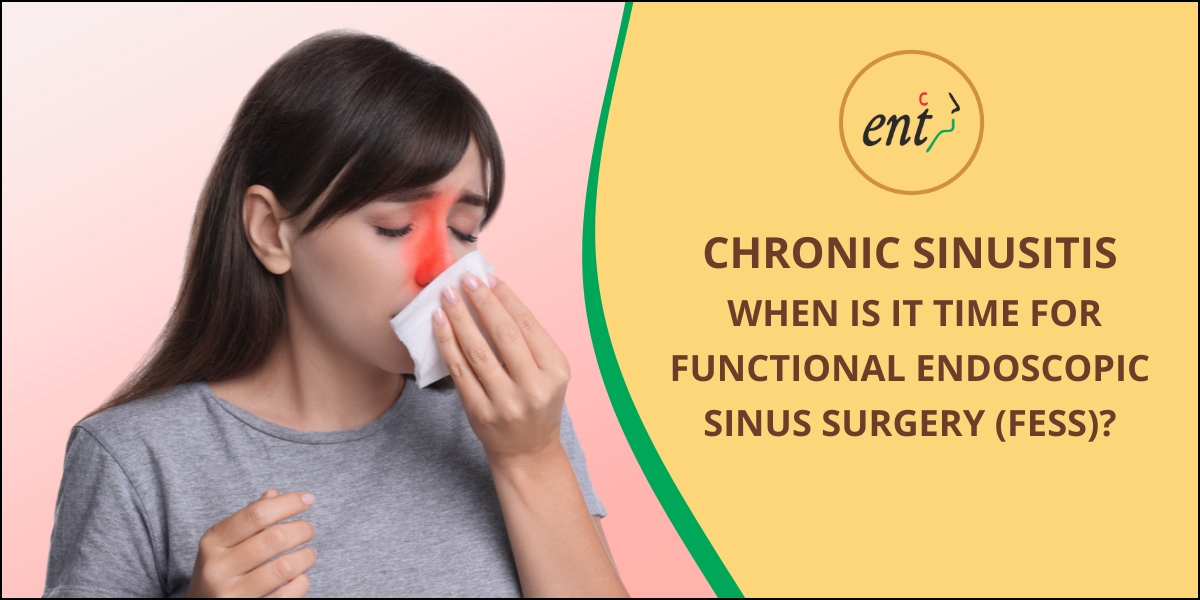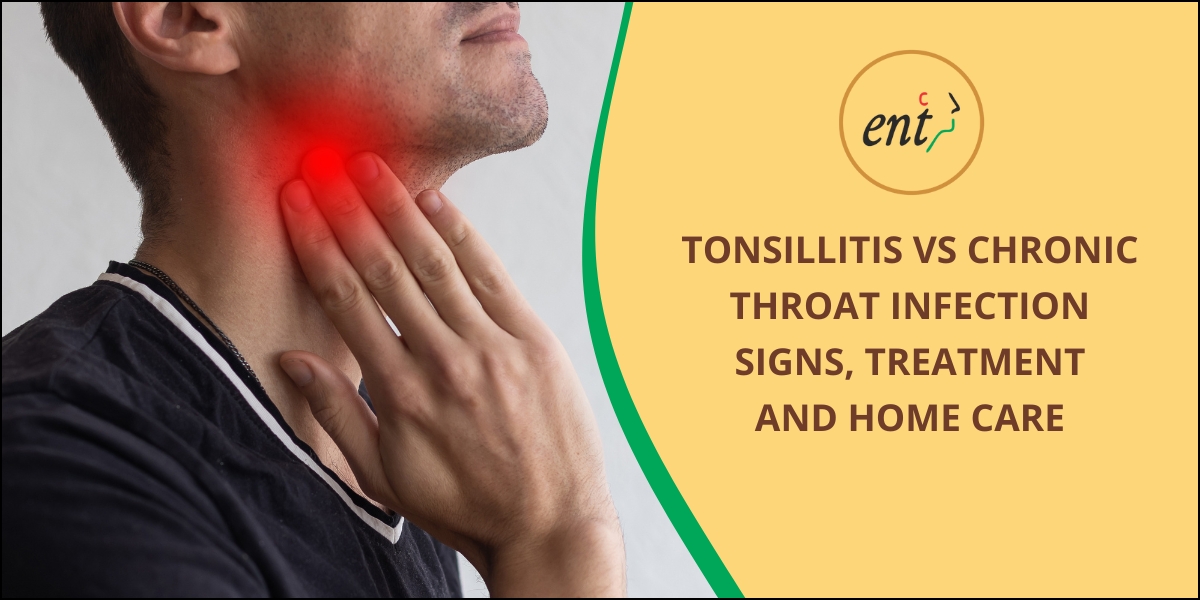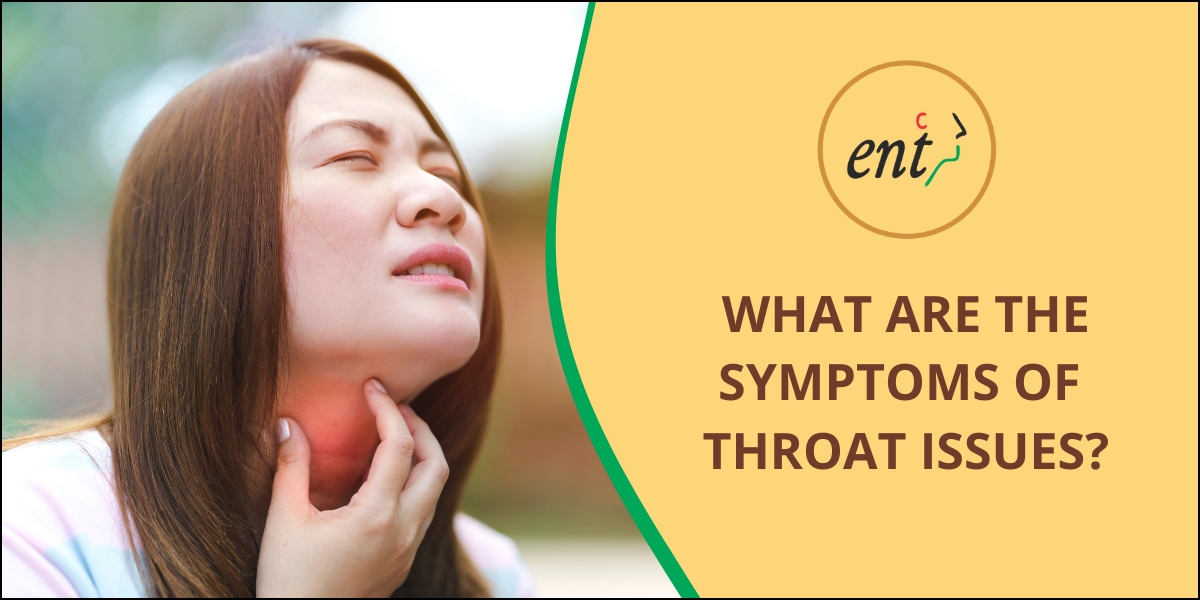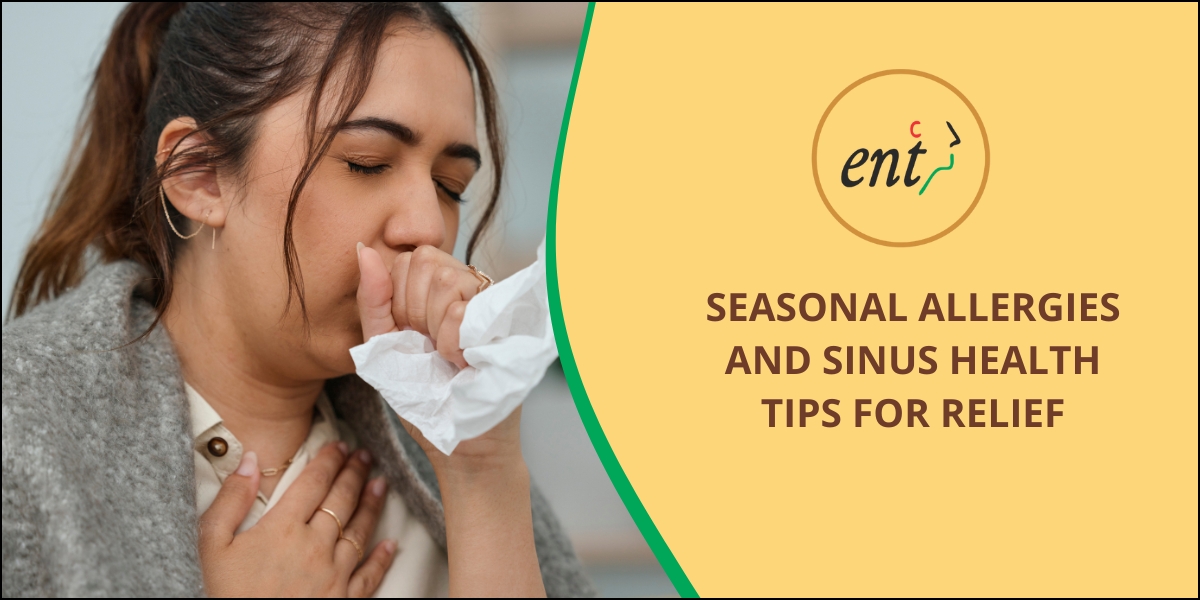Chronic Sinusitis: When Is It Time for Functional Endoscopic Sinus Surgery (FESS)? If you’re struggling with chronic sinusitis, you know it’s more than just a stubborn cold. It’s a relentless cycle of facial pressure, congestion, headaches, and fatigue that can diminish your quality of life. Despite trying countless medications, nasal sprays, and home remedies, the relief is often temporary. When conservative treatments fall short, many patients and their doctors begin to discuss a highly effective surgical option: Functional Endoscopic Sinus Surgery (FESS). But how do you know when it’s truly time to consider this step? Understanding Chronic Sinusitis Chronic sinusitis is defined as inflammation of the sinuses lasting for 12 weeks or longer, despite treatment attempts. Common symptoms include: Nasal obstruction or congestion Thick, discolored nasal drainage Facial pain, pressure, or fullness Reduced sense of smell (anosmia) Headaches and fatigue When medications like antibiotics, corticosteroids, and saline irrigations fail to provide sustained relief, the inflammation may be caused by a persistent physical blockage or anatomical issue that needs to be addressed. What is Functional Endoscopic Sinus Surgery (FESS)? FESS is a minimally invasive procedure that has revolutionized sinus surgery. Using a tiny, lighted endoscope, a skilled ENT surgeon enters the nasal passages to: Remove blockages (like polyps or swollen tissue) Widen natural drainage pathways of the sinuses Restore normal sinus function and ventilation The goal is not to “remove” sinuses but to open them, allowing them to drain properly and for medications to work more effectively. Recovery is typically faster and less painful than with older surgical techniques. Key Signs It Might Be Time for FESS Consider discussing FESS with your ENT specialist if you experience: Failed Maximum Medical Therapy: You have diligently followed a doctor-prescribed regimen of treatments (including nasal steroid sprays, courses of antibiotics or oral steroids, and saline irrigation) for several months with little to no improvement. Recurrent Acute Infections: You suffer from four or more significant sinus infections in a year, each requiring medication. Nasal Polyps: You have developed nasal polyps that obstruct sinus drainage and do not shrink sufficiently with steroid treatments. Anatomical Obstructions: A CT scan reveals structural issues like a severely deviated septum, enlarged turbinates, or narrow sinus openings that contribute to the problem. Complications or Severe Symptoms: You experience complications such as frequent asthma flares linked to sinusitis, or your symptoms are severely impacting your daily life, sleep, and work. The decision to proceed with FESS is made collaboratively between you and your ENT surgeon after a detailed evaluation, which almost always includes a CT scan of the sinuses to map the anatomy and inflammation. Expert Sinusitis Care in Pune: Dr. Rohit Prasad For those seeking lasting relief from chronic sinusitis in the Pune. Dr. Rohit Prasad offers expert diagnosis and advanced treatment options, including Functional Endoscopic Sinus Surgery (FESS). As a trusted ENT specialist, Dr. Rohit If you are searching for effective sinusitis treatment in Bhosari, PCMC, Pune, or a skilled ENT surgeon in Pune for nasal polyp removal or chronic sinus infection treatment, consulting with an experienced professional like Dr. Rohit Prasad is a critical step toward breathing freely again. Visit : Dr. Rohit Prasad | ENT Doctor in Bhosari, Moshi | ENT Specialist | Dr. Prasad ENT Hospital Address : first floor, Glorious Crown, Shop No 103, 104, 105, Spine Rd, Bhosari, Pimpri-Chinchwad, Pune Contact Number : 97025 74417 FAQs on Chronic Sinusitis & FESS 1. What is the recovery time for FESS surgery?Most patients return to light work within a week. Full recovery, with complete healing and final results, typically takes 4-6 weeks. Strenuous activity should be avoided for about two weeks. 2. Is FESS a major surgery?FESS is considered a minimally invasive, major outpatient surgery. While it is a significant procedure performed under anesthesia, it uses small endoscopes without external incisions, leading to less discomfort and quicker recovery than traditional surgery. 3. What are the risks of sinus surgery?Risks are low but can include bleeding, infection, changes in smell or taste, tear duct injury, or rare complications like cerebrospinal fluid leak. An experienced surgeon minimizes these risks. 4. How successful is FESS surgery?Success rates are high, with over 85-90% of patients experiencing significant, long-term improvement in their symptoms and quality of life. It is not a cure for sinusitis but a powerful tool to manage it effectively. 5. Can sinus polyps come back after FESS?Yes, polyps can recur, as FESS removes them but does not cure the underlying inflammatory tendency. However, surgery often makes future polyps easier to manage with medication and can prevent severe re-obstruction for many years. Recent Post Chronic Sinusitis: When Is It Time for Functional Endoscopic Sinus Surgery (FESS)? Tonsillitis vs Chronic Throat Infection: Signs, Treatment & Home Care What are the symptoms of throat issues? Seasonal Allergies and Sinus Health: Tips for Relief Common Ear Infections: Symptoms, Causes, and When to See a Doctor contact us Name(Required) First Phone(Required)Your Message(Required)CAPTCHA
Tonsillitis vs Chronic Throat Infection: Signs, Treatment & Home Care
Tonsillitis vs Chronic Throat Infection: Signs, Treatment & Home Care Throat infections are among the most common health complaints, but not all are the same. Distinguishing between acute conditions like tonsillitis and persistent issues like a chronic throat infection is crucial for effective treatment and long-term health. This guide breaks down the signs, treatments, and home care strategies for both, empowering you to take informed action for your throat health. Understanding Tonsillitis: The Acute Inflammation Tonsillitis refers to the inflammation of the tonsils, the two lymph nodes at the back of your throat. It is primarily an acute condition, often caused by viral or bacterial infections. Key Signs & Symptoms of Tonsillitis: Sudden Onset: Symptoms develop quickly. Severe Sore Throat: Pain that may worsen when swallowing. Red, Swollen Tonsils: Often with white or yellow patches. Fever and Chills. Swollen, Tender Lymph Nodes in the neck. Headache and Fatigue. Primary Causes: Viral Infections: (Most common) Such as the common cold or flu viruses. Bacterial Infections: Notably Group A Streptococcus (strep throat). Treatment Approaches: Viral Tonsillitis: Focus is on symptom relief. Treatment includes rest, fluids, and over-the-counter pain relievers (like ibuprofen or acetaminophen). Bacterial Tonsillitis: Requires a course of antibiotics prescribed by a doctor. Completing the full course is essential. Recurrent Cases: If tonsillitis episodes are frequent and debilitating, an ENT specialist may recommend a tonsillectomy (surgical removal of the tonsils). Understanding Chronic Throat Infection A chronic throat infection implies a persistent or recurrent infection and inflammation in the throat area that lasts for an extended period (often several weeks or more). It may not always involve the tonsils directly. Key Signs & Symptoms: Persistent Soreness: A constant or frequently recurring scratchy or painful throat. Chronic Irritation or Dryness. Difficulty Swallowing that lingers. Mild Hoarseness or voice changes. The sensation of a lump in the throat (globus pharyngeus). Not always accompanied by high fever. Common Causes & Related Conditions: Untreated or Resistant Infections: A prior infection that hasn’t fully cleared. Chronic Tonsillitis: Recurrent bouts of tonsillitis. Sinusitis & Post-Nasal Drip: Mucus drainage constantly irritates the throat. Acid Reflux (GERD/LPR): Stomach acid flowing back into the esophagus and throat is a major cause of chronic irritation. Environmental Irritants: Like smoke, pollution, or allergens. Fungal Infections: Such as oral thrush. Treatment Approaches: Treatment targets the root cause: Detailed Diagnosis: An ENT specialist may use a throat scope to examine the area closely. For GERD/LPR: Lifestyle changes and acid-reducing medications. For Chronic Sinusitis: Nasal sprays, irrigation, or antibiotics. For Persistent Bacterial Foci: A longer or different course of antibiotics may be needed. Tonsillectomy may be considered if chronically infected tonsils are the source. Home Care and Prevention Strategies Support your recovery and prevent future issues with these tips: Hydration is Key: Drink plenty of warm fluids (water, herbal teas, broths). This soothes the throat and thins mucus. Salt Water Gargle: Gargling with warm salt water (1/2 tsp salt in a glass of water) several times a day reduces swelling and discomfort. Humidify the Air: Use a cool-mist humidifier, especially in dry climates or during winter, to prevent throat dryness. Rest Your Voice: Avoid shouting, whispering, or prolonged talking. Soothing Remedies: Honey (for adults and children over 1), lozenges, and warm soups can provide comfort. Avoid Irritants: Steer clear of cigarette smoke, strong chemicals, and very spicy foods. Practice Good Hygiene: Wash hands frequently to prevent the spread of germs. When to See a Doctor Consult an ENT specialist if you experience: A sore throat lasting more than 48 hours or recurring frequently. Severe difficulty swallowing or breathing. High fever (over 101°F or 38.3°C). A rash or joint pain alongside the sore throat. A lump in the neck. Hoarseness lasting over two weeks. Professional diagnosis ensures you get the correct treatment, whether it’s a simple course of medicine or a more specialized plan for a chronic condition. Expert Throat Care at Dr. Prasad ENT Hospital Dr. Prasad ENT Hospital stands as a trusted center for comprehensive throat infection treatment. Dr. Rohit Prasad – ENT specialist, employs advanced diagnostic tools to accurately differentiate between acute tonsillitis, chronic throat infections, and other underlying conditions like acid reflux or allergies. The clinic offers a complete range of treatments, from medical management to minor surgical procedures like tonsillectomy. If you’re struggling with persistent throat issues, seeking expert consultation at Dr. Prasad ENT Hospital can provide the clarity and effective treatment plan you need for lasting relief and better throat health. Recent Post Tonsillitis vs Chronic Throat Infection: Signs, Treatment & Home Care What are the symptoms of throat issues? Seasonal Allergies and Sinus Health: Tips for Relief Common Ear Infections: Symptoms, Causes, and When to See a Doctor What is the Fastest Way to Cure a Throat Infection? contact us Name(Required) First Phone(Required)Your Message(Required)CAPTCHA
What are the symptoms of throat issues?
What are the symptoms of throat issues? We’ve all experienced it: that familiar scratch, pain, or tickle in the back of the throat. While a simple sore throat from a cold is common, it’s not the only story your throat can tell. Persistent or unusual symptoms can be your body’s way of signaling a deeper issue that needs attention. Understanding the different symptoms of throat problems is the first step toward getting the right care. Let’s break down the common signs and what they might mean. The Common Culprits: Frequent Throat Symptoms Most throat issues present with a recognizable set of symptoms. Paying close attention to their duration and severity is key. Pain or Soreness: This is the most universal symptom. It can range from a mild scratch to severe pain that makes swallowing difficult. While often caused by viral infections (like the common cold or flu), persistent pain on one side could indicate tonsillitis or an abscess. Hoarseness or Voice Changes: If your voice becomes raspy, weak, or sounds deeper than usual, you’re experiencing hoarseness. Acute hoarseness is typical with laryngitis from overuse or infection. However, if it lasts for more than two to three weeks, it’s essential to see a doctor, as it could point to vocal cord nodules, polyps, or other concerns. Difficulty Swallowing (Dysphagia): The sensation that food or liquid is getting stuck in your throat or chest should never be ignored. It can be caused by severe inflammation, a stricture (narrowing of the esophagus), or, in persistent cases, may require evaluation for more serious conditions. The Constant “Lump in the Throat” Feeling: Known medically as globus sensation, this is the feeling of a lump or mucus in your throat without a physical blockage. It’s often linked to acid reflux (GERD), where stomach acid irritates the throat, or to stress and anxiety. Persistent Cough or Throat Clearing: A cough that won’t go away or a constant need to clear your throat can be more than just a leftover cold symptom. It’s a classic sign of post-nasal drip from allergies or sinusitis, and also a primary indicator of silent reflux. Swollen Lymph Nodes or Tonsils: You may notice visible swelling in the front of your neck or see white patches on enlarged, red tonsils. Swollen lymph nodes indicate your body is fighting an infection, while swollen tonsils are a hallmark of tonsillitis. When Should You See a Doctor? It’s time to consult a throat specialist if you experience any of the following: Symptoms that persist for more than two weeks. Severe pain that prevents you from swallowing saliva or drinking. Difficulty breathing or a high fever accompanying the throat issue. A lump in the neck or coughing up blood. Unexplained weight loss along with throat symptoms. Listening to your body is crucial. Early diagnosis and treatment can prevent a minor issue from becoming a major one. FAQs Q: What are the first signs of a throat infection?A: The first signs are typically a scratchy or sore throat, pain when swallowing, and slightly swollen, tender glands in your neck. Q: How do I know if my sore throat is viral or bacterial?A: While only a test can confirm, viral sore throats often come with a runny nose and cough. Bacterial infections (like strep) frequently feature a sudden, severe sore throat without cold symptoms, plus a fever and white spots on the tonsils. Q: Can acid reflux cause throat problems?A: Yes. Acid reflux can cause a chronic sore throat, hoarseness, that “lump in the throat” feeling, and a persistent dry cough by irritating the vocal cords and throat lining. If you are experiencing persistent or worrying throat symptoms seeking expert advice is the best path to recovery. Dr. Rohit Prasad is a trusted throat specialist in Bhosari, Moshi, providing comprehensive care for a wide range of throat, voice, and swallowing disorders. Recent Post What are the symptoms of throat issues? Seasonal Allergies and Sinus Health: Tips for Relief Common Ear Infections: Symptoms, Causes, and When to See a Doctor What is the Fastest Way to Cure a Throat Infection? Sinus Infection – Causes, Symptoms & Treatment contact us Name(Required) First Phone(Required)Your Message(Required)CAPTCHA
Seasonal Allergies and Sinus Health: Tips for Relief
Seasonal Allergies and Sinus Health: Tips for Relief As the seasons change in Bhosari, so does the landscape, often blanketed with pollen from blooming trees and flowers. While beautiful, this natural process is a major trigger for millions dealing with seasonal allergies. For many, it’s more than just a few sneezes; it’s a constant battle with congestion, sinus pressure, and fatigue that can disrupt daily life. Understanding the link between seasonal allergies and your sinus health is the first step toward effective management. This guide, drawing on common concerns addressed by ENT specialists, will provide practical tips to help you breathe easier. The Allergy-Sinus Connection: Why You Feel Terrible When you inhale an allergen like pollen, mold, or dust, your immune system goes into overdrive, releasing histamine. This chemical causes inflammation and swelling in the nasal passages and sinus linings. This swelling traps mucus, preventing it from draining properly and creating the perfect environment for pressure, pain, and even infection—a condition known as sinusitis. Effective Tips for Allergy and Sinus Relief Managing your symptoms involves a two-pronged approach: reducing exposure to allergens and effectively treating the inflammation. Know Your Triggers and Check Pollen Counts: Pay attention to daily pollen forecasts. On days when counts are high for your specific trigger (tree, grass, or weed pollen), try to limit your time outdoors, especially during mid-morning and early evening when levels peak. Create an Allergy-Proof Home: Keep windows closed during high-pollen seasons and use air conditioning with a HEPA filter. After spending time outside, shower and change your clothes to rinse off any lingering allergens. Regularly vacuum and dust to minimize indoor triggers. Nasal Irrigation is Key: Using a saline nasal spray or a neti pot is one of the most effective ways to find relief from sinus pressure. It helps flush out mucus, allergens, and irritants from your nasal passages, reducing inflammation and improving drainage. Manage Inflammation with Medication: Over-the-counter antihistamines can block the effect of histamine, while nasal corticosteroid sprays reduce inflammation directly in the nasal passages. It’s best to start these medications before your allergy season begins for maximum effectiveness. Always consult a doctor before starting a new medication. Stay Hydrated: Drinking plenty of water, broth, or herbal tea helps to thin mucus, making it easier to drain from your sinuses and preventing blockages that lead to pain and pressure. When to See an ENT Specialist While these self-care strategies are highly effective, persistent symptoms may require professional care. If you experience severe facial pain, symptoms that last more than a week, or frequent sinus infections, it’s time to consult an expert. An ENT specialist in Bhosari, like Dr. Rohit Prasad, can provide a precise diagnosis, identify your specific allergens, and develop a comprehensive treatment plan. This may include prescription-strength medications or long-term solutions like immunotherapy (allergy shots or drops) to desensitize your immune system to triggers. Don’t let seasonal allergies control your life. By taking proactive steps and seeking expert care when needed, you can enjoy every season with comfort and clarity. Frequently Asked Questions (FAQs) 1. What is the fastest way to relieve sinus pressure from allergies?The fastest relief often comes from combining a saline nasal rinse to flush out allergens with a warm compress over the sinuses to ease pain. An over-the-counter decongestant can also provide quick, short-term relief. 2. How can I tell if it’s a sinus infection or just allergies?Allergies typically cause itchy eyes, sneezing, and clear, watery mucus. A sinus infection often involves thick, yellow or green mucus, facial pain/pressure, and sometimes a fever. 3. What are the best natural remedies for seasonal allergies?Saline nasal irrigation, using a HEPA air purifier, wearing a mask while gardening, and consuming local honey (for some) are popular natural approaches. Staying hydrated is also crucial. 4. When should I see a doctor for my allergies?See a doctor if over-the-counter remedies aren’t working, your symptoms are severe and disrupt your sleep or daily activities, or you suspect you have a sinus infection. 5. Can seasonal allergies cause dizziness?Yes. Congestion and sinus pressure can affect the Eustachian tubes in your ears, leading to a feeling of fullness, muffled hearing, and sometimes dizziness or vertigo. Recent Post Seasonal Allergies and Sinus Health: Tips for Relief Common Ear Infections: Symptoms, Causes, and When to See a Doctor What is the Fastest Way to Cure a Throat Infection? Sinus Infection – Causes, Symptoms & Treatment Feeling Blocked? When You Need Ear Wax Removal Treatment contact us Name(Required) First Phone(Required)Your Message(Required)CAPTCHA




